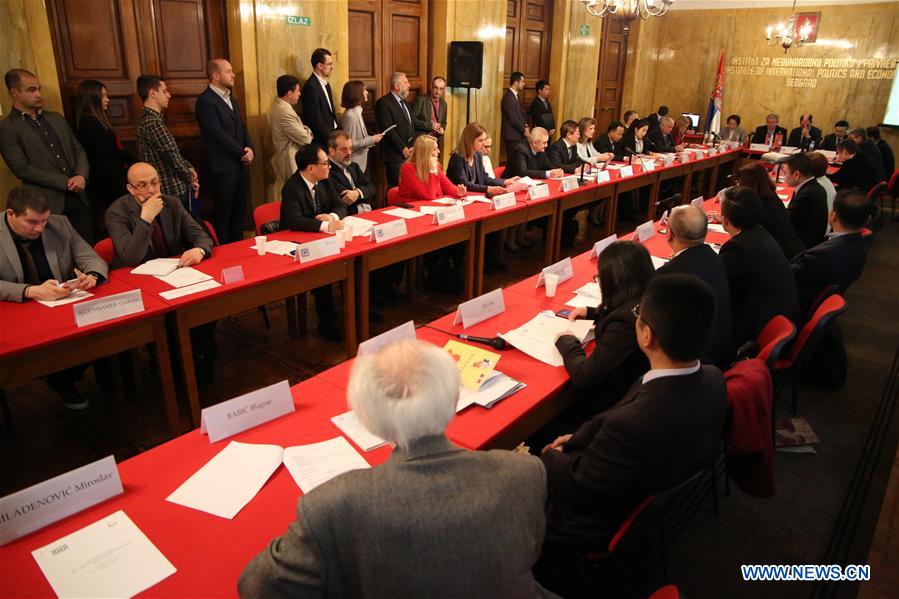International conference dedicated to BRI opens in Belgrade
China's global cooperation project has emerged as a major factor in the infrastructural and economic development of Serbia and the Western Balkans, fostering regional partnership and mutual benefits, said keynote speakers of an international scientific conference dedicated to the sixth anniversary of the Belt and Road Initiative (BRI) n Belgrade on Monday.
China's global cooperation project has emerged as a major factor in the infrastructural and economic development of Serbia and the Western Balkans, fostering regional partnership and mutual benefits, said keynote speakers of an international scientific conference dedicated to the sixth anniversary of the Belt and Road Initiative (BRI) n Belgrade on Monday.
The international conference "Belt and Road Initiative: Six Years After" is held in Belgrade, Serbia, on April 15, 2019. [Photo/Xinhua]
The international conference "Belt and Road Initiative: Six Years After" opened on Monday with the participation of academics from both Serbia and China.
Branislav Djordjevic, the director of the Institute of International Politics and Economics, said that Serbia has long been facing economic hardship due to its geopolitical position, and China's initiative is welcomed here in a hope for accelerated development after most of Central and East European (CEE) countries, which are also members of the European Union, were badly struck by the global economic crisis.
He pointed out that the BRI turned the perspective of these countries into an encouraging one, and the relations between the countries in the region turned from competition into partnership.
Gao Peiyong, vice president of Chinese Academy of Social Sciences, suggested that in future Serbia and China should further expand cooperation on infrastructure in areas such as electricity, internet, communications and agriculture, and also open new financing channels.
On behalf of the Serbian government, Vladimir Popovic, state secretary in the ministry of Education, Science and Technological Development, stressed the importance of Serbia's cooperation with China, in scientific ties developing in parallel with the economic ones.
Chinese Ambassador to Serbia Chen Bo pointed out that the BRI in the past six years promoted Serbia's economic and social development, at the same time creating a wide platform for Chinese companies to tap into European market, giving examples several successful Chinese investments in Serbia, such as the Smederevo Steel mill (HBIS), the Mining and Smelting Combine Bor (Zijin) and the greenfield investment of Linglong in the industrial zone of the city of Zrenjanin.
"In past six years the scale of trade exchange between China and Serbia marked fast growth, measured at 55.7 percent, while the number of Chinese tourists increased more than 16 times to the number of 100,000 tourists in past 2018," the ambassador concluded.


